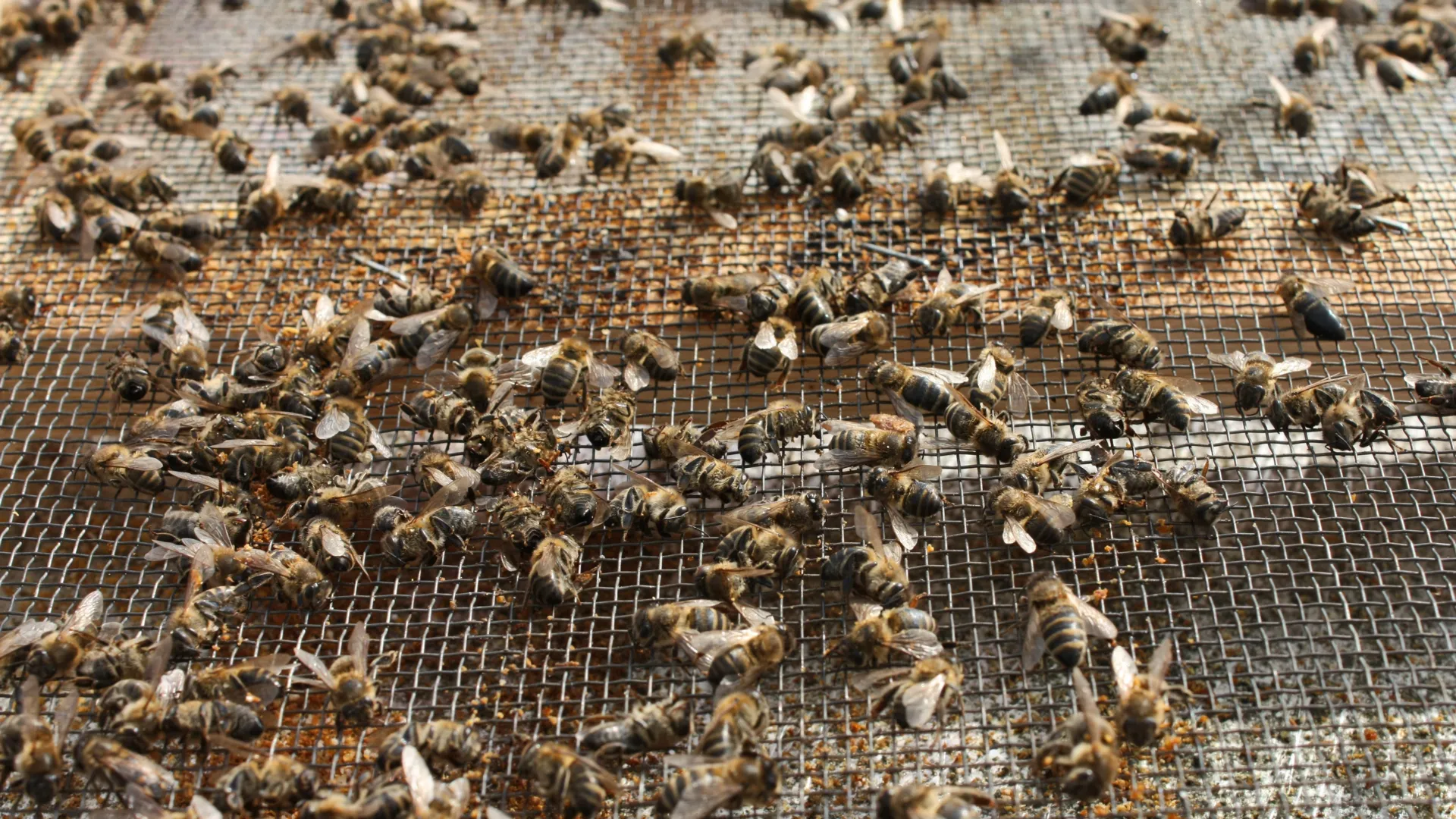Banned in Europe, sprayed in America: The fungicide threatening our pollinators
- Date:
- July 2, 2025
- Source:
- Macquarie University
- Summary:
- Macquarie University researchers reveal that chlorothalonil, still commonly sprayed on American and Australian produce, cripples insect fertility by more than a third at residue levels typically found on food. The unexpectedly sharp drop in fruit-fly egg production suggests cascading damage to pollinator populations vital for crops and ecosystems. Although the fungicide is outlawed in the EU, Australian growers often apply it preventively, underscoring regulatory blind spots. Scientists urge scaled-back spraying and sustainable alternatives to stop a hidden contributor to global insect decline.
- Share:

A widely-used agricultural chemical sprayed on American and Australian fruits and vegetables to prevent fungal disease is killing beneficial insects critical for pollination and ecosystem health, new Macquarie University research shows.
The study, published in Royal Society Open Science, found chlorothalonil - one of the world's most extensively used fungicides - severely impacts insect reproduction and survival, even at the lowest levels routinely detected on food.
"Even the very lowest concentration has a huge impact on the reproduction of the flies that we tested," says lead author Darshika Dissawa, a PhD candidate from Macquarie's School of Natural Sciences.
"This can have a big knock-on population impact over time because it affects both male and female fertility."
The researchers exposed fruit flies (Drosophila melanogaster) to chlorothalonil levels matching those typically found in produce from cranberries to wine grapes. Even at the lowest dose, flies showed a 37 percent drop in egg production compared with unexposed individuals.
Chlorothalonil is a widely applied broad-spectrum fungicide in American agriculture, used on crops like:
- Tomatoes
- Potatoes
- Peanuts
- Corn
- Turfgrass (e.g., golf courses)
- Fruits such as peaches, strawberries, and melons
Supervising author Associate Professor Fleur Ponton says the dramatic decline was unexpected.
"We expected the effect to increase far more gradually with higher amounts. But we found that even a very small amount can have a strong negative effect," Associate Professor Ponton says.
Although banned in the European Union, chlorothalonil is extensively applied to Australian crops including orchards and vineyards, often preventatively when no disease is present.
The findings add to mounting evidence of global insect population decline, with some regions reporting drops exceeding 75 percent in recent decades.
"We need bees and flies and other beneficial insects for pollination, and we think this is an important problem for pollinator populations," Associate Professor Ponton says.
The research highlights a critical knowledge gap in pesticide regulation, with fewer than 25 scientific papers examining chlorothalonil's effects on insects despite its widespread use.
The researchers recommend more sustainable practices, including reduced application frequency to allow insect population recovery between treatments.
Story Source:
Materials provided by Macquarie University. Note: Content may be edited for style and length.
Journal Reference:
- Darshika M. Dissawa, Ines Boyer, Fleur Ponton. Chlorothalonil exposure impacts larval development and adult reproductive performance in Drosophila melanogaster. Royal Society Open Science, 2025; 12 (6) DOI: 10.1098/rsos.250136
Cite This Page: